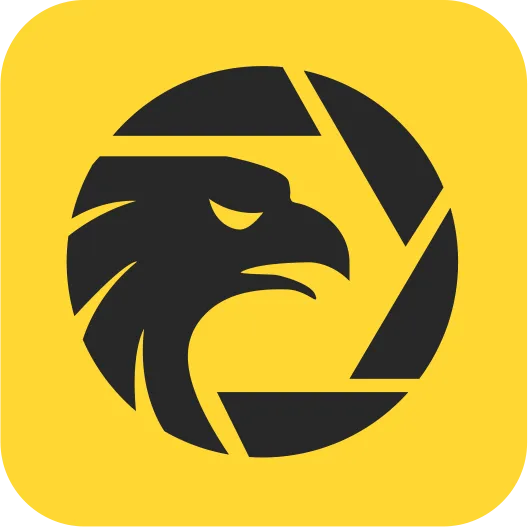公司简介
| RBC 评论摘要 | |
| 注册日期 | 2001-12-11 |
| 注册国家/地区 | 加拿大 |
| 监管 | 受监管 |
| 投资产品 | 股票、期权、新股/首次公开发行、ETF、共同基金、GIC、债券、黄金和白银 |
| 交易平台 | 在线投资平台、RBC 移动应用(手机) |
| 客户支持 | 免费电话:1-800-769-2560 |
| 海外:1-416-977-1255 | |
| 粤语和普通话:1-800-667-8668 或 416-313-8611 | |
| 传真:1 (888) 722-2388 | |
RBC 信息
RBC 直接投资是加拿大皇家银行旗下的自主投资平台(RBC),受严格监管。它提供包括股票、期权、ETF、共同基金和债券在内的各种投资服务,涵盖加拿大和美国等18个全球市场。支持在线平台、移动应用和专业交易仪表板三种交易方式,迎合从初学者到资深交易者的各类投资者。
优缺点
| 优点 | 缺点 |
| 受监管 | 账户信息不明确 |
| 低佣金结构(每笔交易低至$6.95) | 维护费门槛 |
| 清晰的费用信息 | 美元-加元汇率差高达1.6% |
| 灵活的交易平台 |
RBC 是否合法?
加拿大投资监管机构监管RBC,其许可证号尚未公布,RBC严格遵守加拿大证券法规。
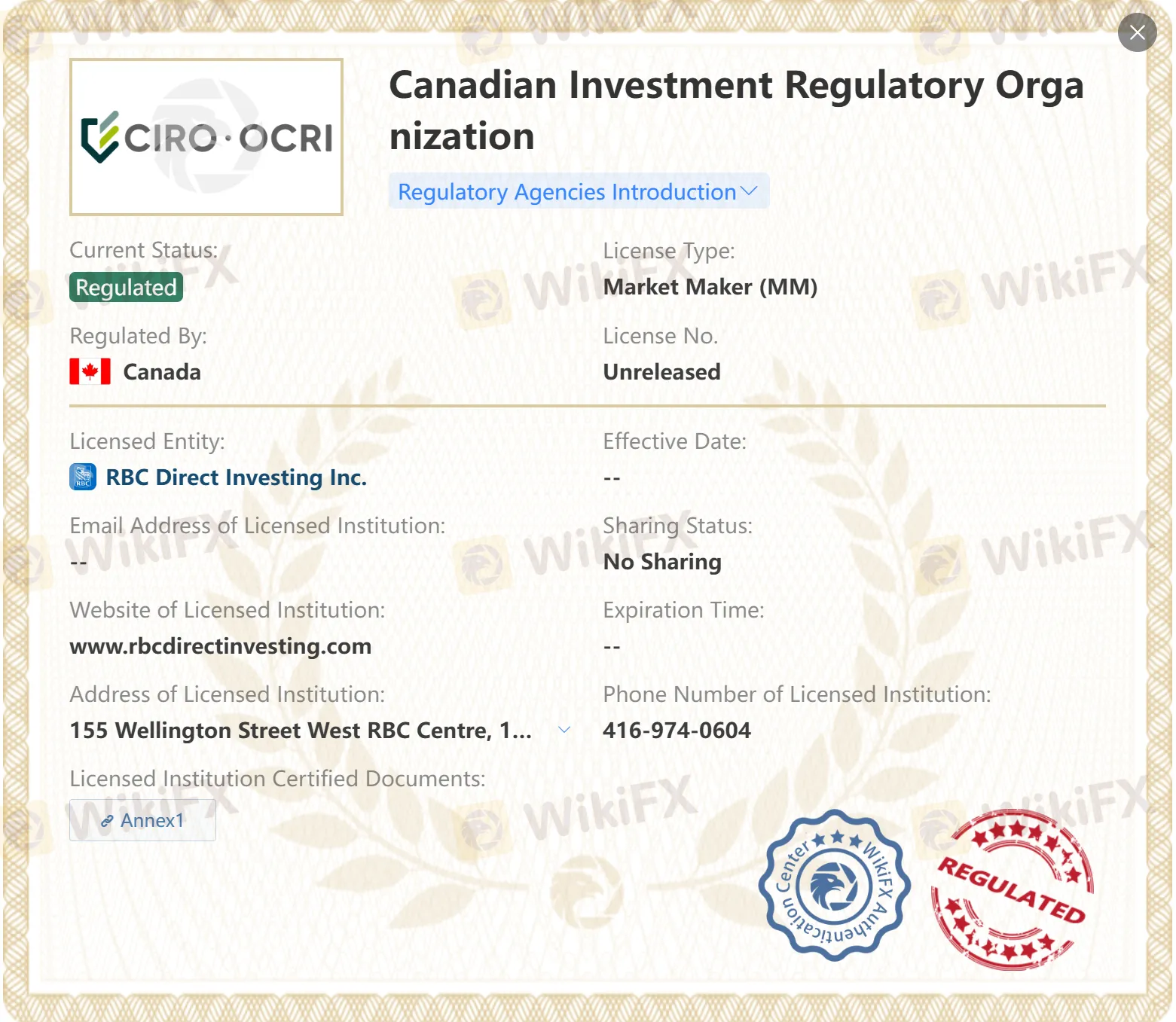
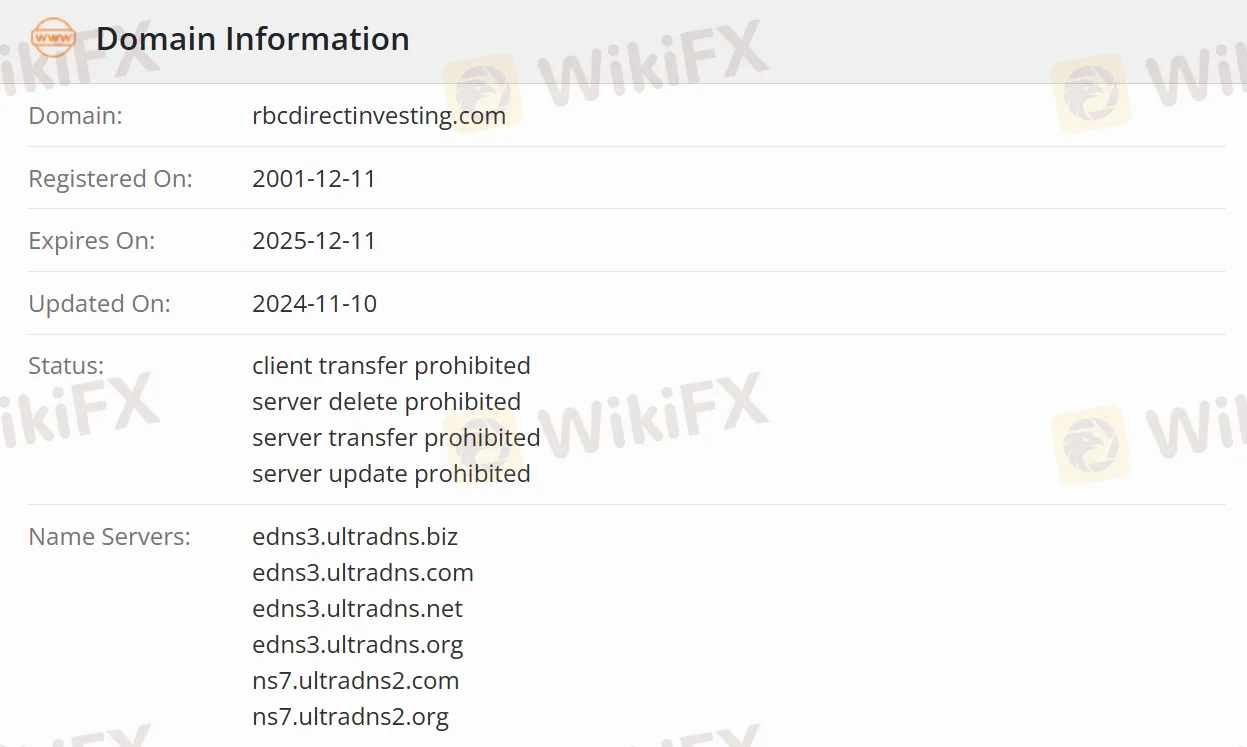
RBC 可以交易什么?
RBC 提供加拿大和美国股票,包括普通股和优先股,新发行股,期权,权利和认股权证,股权,固定收益和货币市场互惠基金,交易所交易基金(ETFs),以及国库券,债券和保本投资证书(GICs)等固定收益投资。
| 产品 | 可交易工具 | 支持 |
| 股权投资 | 股票 | ✔ |
| 期权 | ✔ | |
| 新发行股/首次公开发行股票 | ✔ | |
| 内置分散化 | ETFs | ✔ |
| 共同基金 | ✔ | |
| 固定收益投资 | GICs | ✔ |
| 债券 | ✔ | |
| 贵金属 | 黄金和白银 | ✔ |

账户类型
RBC 提供注册账户,享有税收优惠,以及非注册账户。
注册账户
TFSA(免税储蓄账户)
RRSP(注册退休储蓄计划)
FHSA(首次购房储蓄账户)
RESP(注册教育储蓄计划)
RRIF(注册退休收入基金)
非注册账户
现金账户,保证金账户,以及为机构投资者提供的公司/信托账户(支持公司/合伙结构)。
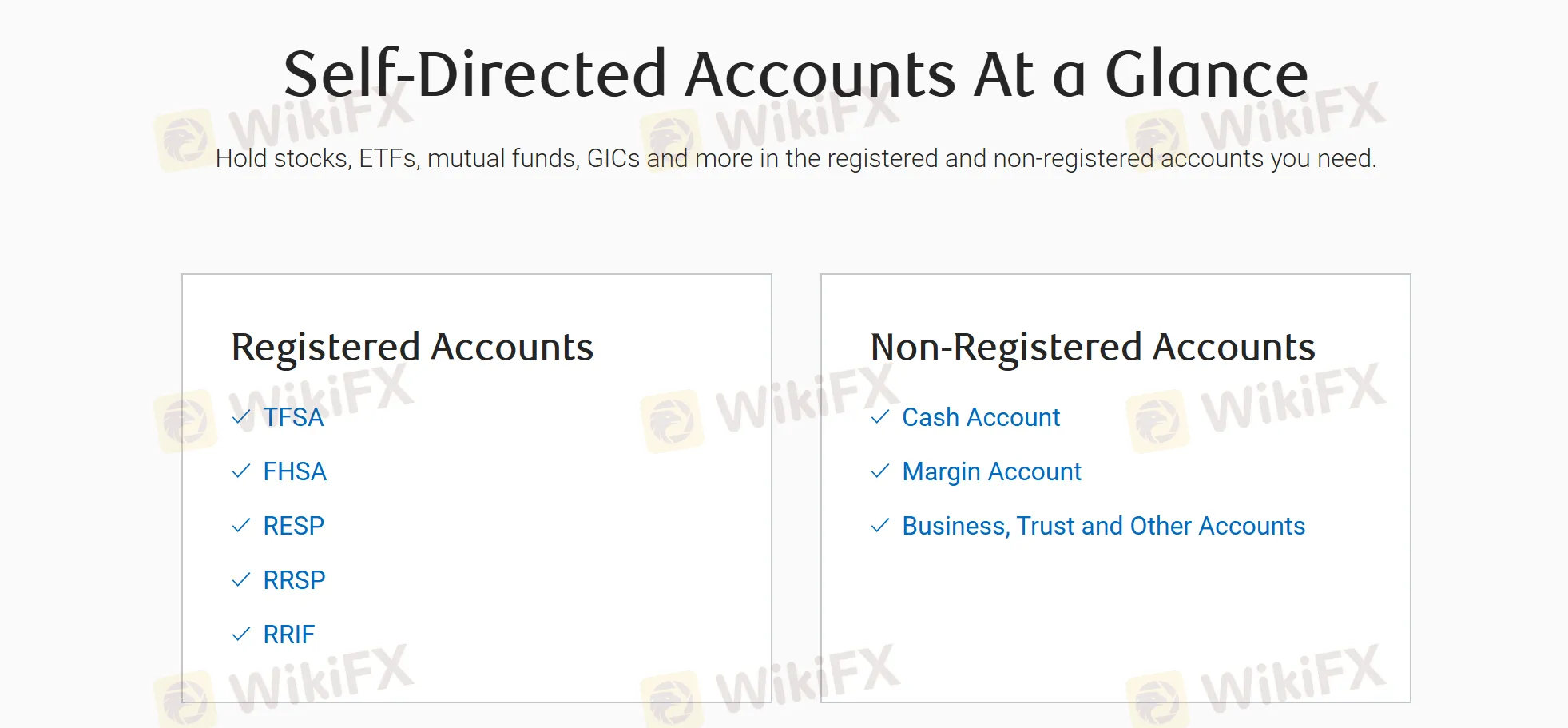
RBC 费用
佣金
| 资产 | 佣金详情 |
| 股票/ETF 交易 | 在线:每笔交易$9.95(每季度少于150笔交易),每笔交易$6.95(每季度150笔以上交易) |
| 期权交易 | 在线:每笔交易$9.95 + 每份合同$1.25(低频率),每笔交易$6.95 + 每份合同$1.25(高频率) |
| 共同基金购买 | 1% 佣金(最高$50) |
| 黄金 | $28.95 + 每盎司$1 |
| 白银 | $28.95 + 每盎司$0.10 |
| 固定收益 | 每笔交易起价$25 |
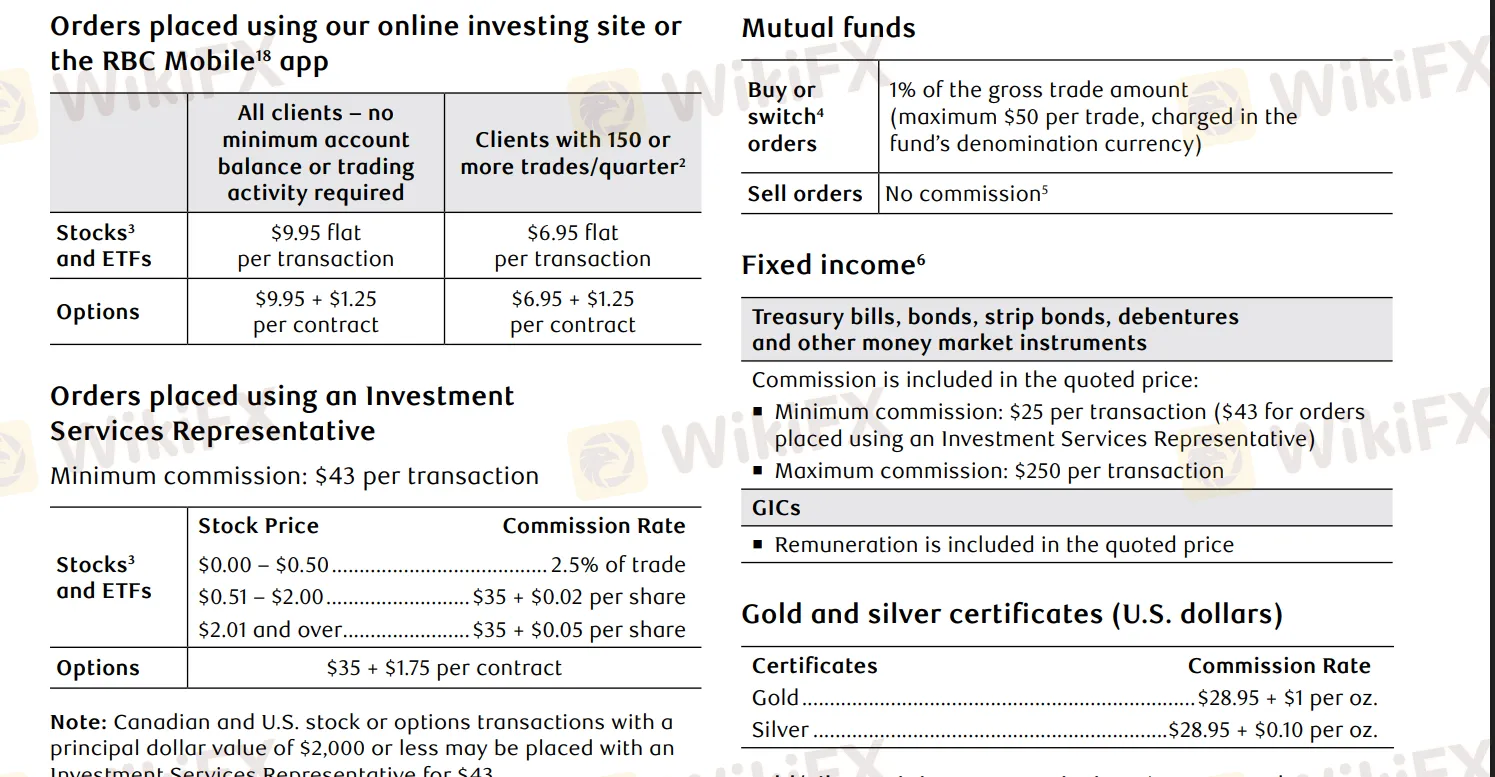
外汇点差费率
| 交易金额(美元) | 点差(基点) | 点差(%) |
| $0 到 $24,999 | 230 | 1.6% |
| $25,000 到 $99,999 | 145 | 1.0% |
| $100,000 到 $499,999 | 85 | 0.6% |
| $500,000 到 $999,999 | 50 | 0.4% |
| $1,000,000 到 $1,999,999 | 25 | 0.2% |
| $2,000,000.01 及以上 | 不超过10个基点 | 0.1% |
如果资产低于$15,000,则需要支付每季度$25的维护费(可豁免)。此外,加拿大或美国境内的电汇交易每笔收取$45。
交易平台
RBC 提供了一个适合进行全面分析的在线投资平台,提供模拟账户。此外,RBC 移动应用程序实现了便捷的移动交易,而专业级的交易板块工具则专为高频交易者和机构投资者量身定制。
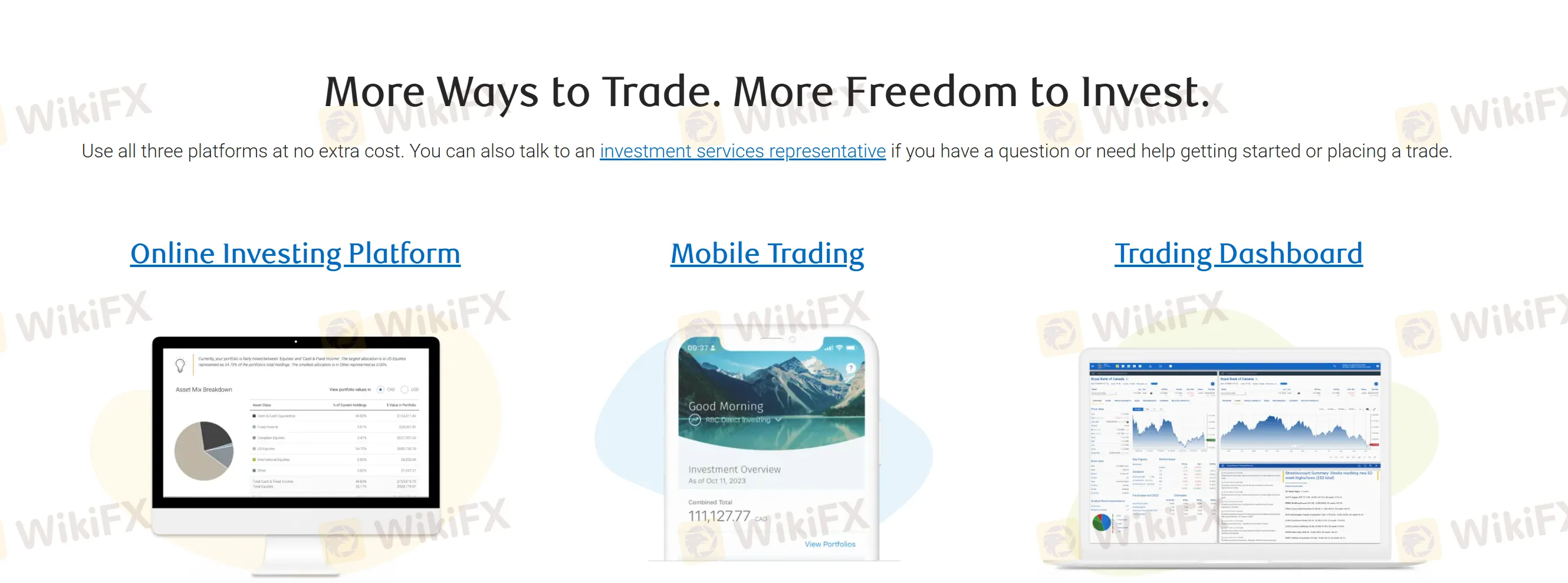
奖金
转移≥ $15,000的资产的交易者将获得最高$200的账户转移费用返还手续费,来自其原始经纪商。


















